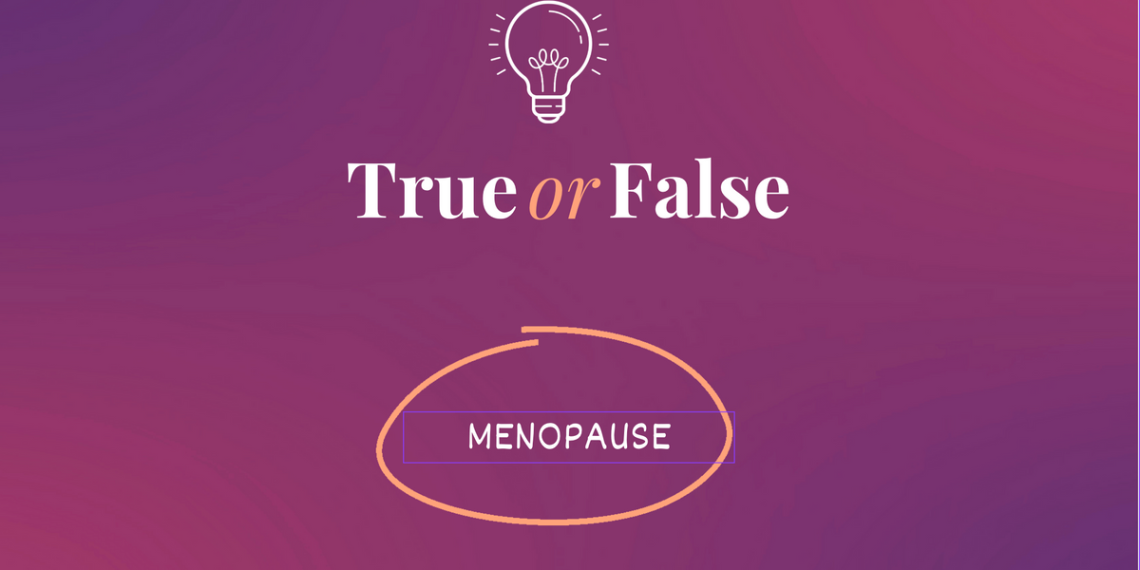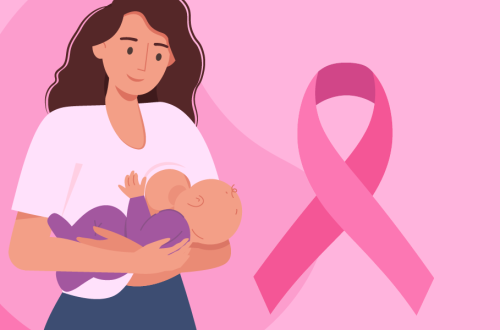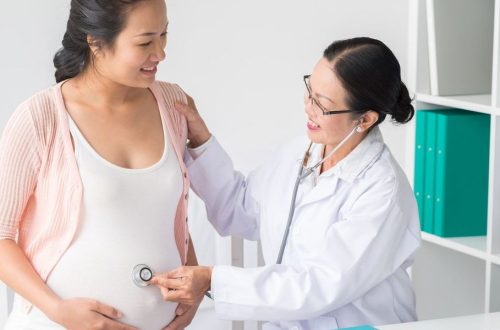October 18, 2024, is World Menopause Day.
Menopause is a natural part of life that everyone who menstruates will go through at some point.
But if you feel self-conscious talking about menopause — we hear you. Despite the fact that more than half of the population experiences this change, there’s still stigma and disparities in education about all the different ways menopause can affect your body, mind and everyday life.
So, let’s pause here for a second so you can take our quiz (see what we did there?) and see how much you know about the signs, symptoms and important facts about menopause.
1. Menopause is the time in your life when you stop having periods.
2. The years leading up to menopause are called perimenopause.
[shortcode-true-false-quiz answer=”true” description=”Perimenopause is the time before menopause when your estrogen and progesterone levels start to fluctuate. Most women are in perimenopause for an average of seven years but perimenopause can go on for more than 14 years. Race, ethnicity and lifestyle factors such as smoking can influence how long you’re in perimenopause.” number “2”]
3. The average age of menopause is 50.
4. Vasomotor symptoms — hot flashes and night sweats — start after menopause.
[shortcode-true-false-quiz answer=”false” description=”For many women, vasomotor symptoms (VMS) begin in perimenopause when estrogen levels start to decline. In fact, one recent study found 1 in 8 women had hot flashes while still having regular periods. And research shows symptoms may last longer for women of color compared to white women.” number=”4″]
5. There are four stages of menopause.
[shortcode-true-false-quiz answer=”false” description=”There are three stages of menopause: perimenopause, menopause and postmenopause. Menopause is technically the point when you’ve gone 12 months without a period, but many people refer to both menopause and postmenopause as this time in your life when you no longer get your period.” number=”5″]
6. You can get pregnant during the menopause transition.
[shortcode-true-false-quiz answer=”true” description=”If it’s been less than 12 months since your last period and you don’t want to get pregnant, you should still use birth control. But a year without a period means you’ve hit menopause and your ovaries have stopped releasing eggs. It’s important to note that you can’t get pregnant naturally after menopause, but you can still get a sexually transmitted infection if you have unprotected sex. So, make sure you’re protecting yourself before, during and after menopause.” number=6″]
7. You can take a menopause test.
8. Menopause weight gain is the most common symptom associated with menopause.
9. Hormone therapy is the only way to treat menopause symptoms.
[shortcode-true-false-quiz answer=”false” description=”Hormone therapy is just one option to help treat symptoms associated with menopause. Hormone therapy works by adding estrogen, progesterone or both back into the body through prescription pills, patches or cream. Other treatments include non-hormonal medications, antidepressants, cognitive behavioral therapy and lifestyle changes such as exercise and eating a balanced diet.” number=”9″]
10. The loss of estrogen during menopause means a lower risk for cardiovascular disease.
[shortcode-true-false-quiz answer=”false” description=”Estrogen helps keep blood vessels relaxed and open, and a lack of estrogen can allow cholesterol to build up in the arteries, which can increase the risk of heart disease — the number one killer of women in the U.S. Thankfully, there are things you can do to help prevent heart disease at any age, including eating a healthy diet rich in fruit, vegetables and whole grains; getting enough physical activity, and taking any medications you’ve been prescribed for blood pressure, cholesterol and diabetes.” number=”10″]
This educational resource was created with support from Astellas, a HealthyWomen Corporate Advisory Council member.
From Your Site Articles
Related Articles Around the Web




